Friday Briefing: The Immigration Reform Decoded
Good morning and welcome to PORTUGAL DECODED. This week, Parliament debated nationality and immigration laws, just days after the executive unveiled its own proposals. Here's what you need to know.
TALK OF THE TOWN

If you enjoy reading PORTUGAL DECODED, please consider donating to keep it free and independent – your generosity means everything!
POLITICS
Chega has launched a parliamentary inquiry into the granting of residence and nationality by past left- and centre-right governments, aiming to reinforce its role as the leading anti-immigration force in Portuguese politics (More).
Iran has requested clarification from Portugal after images surfaced showing U.S. refueling aircraft at Lajes Air Base in the Azores, amid concerns they may have supported recent American strikes on Iranian nuclear facilities (More).
SOCIETY
The Spanish government report blamed its national grid operator and conventional energy for April’s blackout. While Portugal received requests to reduce flows just before the grid collapse, it was not enough to avoid the crisis (More).
House prices in Portugal rose 16.3% in early 2025, marking the steepest increase on record. New data shows that although foreign buyers still pay significantly more, their share of the market has declined (More).
ECONOMICS
The government approved a €500 million income tax cut focused on middle-income earners, with savings of up to €207 annually. Retroactive to January, the measure could take effect in August but still needs parliamentary approval (More).
Fuel and electricity prices in Portugal are surging amid Middle East tensions, raising inflation fears. Economists urge urgent government action to shield families from deeper financial strain (More).
CULTURE AND SPORTS
Xavier Salomon, Deputy Director of New York’s Frick Collection, will become Director of Lisbon’s Gulbenkian Museum in 2026 as the institution completes a major renovation and expands its global presence (More).
Fernando Pimenta won double gold at the 2025 European Canoe Sprint Championships, claiming titles in K1 1000m and 5000m. The victories mark his return to top form after a challenging 2024 season (More).
If you enjoy reading PORTUGAL DECODED, please consider donating to keep it free and independent – your generosity means everything!
DECODER
Is the Government’s migration overhaul final?
No. The measures announced last week and approved by the Council of Ministers on Monday, June 23, are still subject to parliamentary debate and approval. Since the ruling AD coalition lacks an absolute majority in Parliament, it will need support from either left-wing or far-right parties to pass these measures, meaning they will likely be amended before taking effect. They may also still be subject to review by the Constitutional Court. However, if approved. their effects will be retroactive to June 19, aiming to curb the surge in applications submitted following the legislative elections. The government submitted the draft laws to Parliament on Wednesday, the same day that, at the request of the far-right Chega party, Parliament held a debate on the nationality and immigration laws (also known as the Foreigners’ Law). This was the first urgent debate of the new legislative term and the first item on Wednesday’s plenary agenda. The government’s proposals will only be debated next week, but the positions of the various parties were already made clear during Wednesday’s debate: the right wants stricter immigration controls, while the left criticises the measures as discriminatory.
What position did Chega take in Wednesday’s debate?
Although Chega leader André Ventura has recently signaled a willingness to negotiate the proposed changes, he insisted during Wednesday’s debate that the amendments must be more forceful and “go even further.” He launched sharp criticism at the left, particularly the Socialist Party (PS), accusing it of turning Portugal into a “true supermarket” during its years in power. According to Ventura, the PS treated Portuguese nationality “like any other product,” one that could be “bought, sold, given away, or traded.” “Our blood is not for sale or for trade. It’s ours,” he declared, visibly agitated. Ventura also claimed that Chega was the only party that had “wanted to control immigration from day one,” accusing the PSD of having “sold its soul to the PS” out of fear of losing the political centre. He argued that both recent PS and PSD governments had been “weak on immigration control.” While he welcomed the current government’s tougher stance, saying it “finally admitted Chega was right”, he noted that it had “joined the debate late,” adding, “better late than never.” Still, Chega considers the measures insufficient. The party, for example, wants immigrants who acquire Portuguese nationality to automatically lose it if they commit a crime, and to be expelled from the country.
How did left-wing parties respond?
During Wednesday’s debate, left-wing parties strongly criticized both Chega and the government’s proposed immigration and nationality reforms. PS parliamentary leader Pedro Delgado Alves accused Chega of distorting facts, noting that birthright nationality requires parents to have legal residency. He regretted the lack of focus on improving immigrant integration. Other leftist parties united in denouncing the right’s support for golden visas, which can lead to nationality and are exempt from new restrictions. Ecosocialist Livre’s Rui Tavares argued the right protects elite interests, while the Communist Party’s Paula Santos linked nationality abuses to lax golden visa criteria and the “fraudulent” use of the Sephardic Law by Israeli applicants. The Left Block’s Mariana Mortágua accused PSD and IL of yielding to Chega’s “racist and xenophobic” agenda, highlighting the double standard for wealthy investors. Green party PAN’s Inês de Sousa Real warned the reforms favour the wealthy and questioned the government’s plans for ensuring language integration in schools.
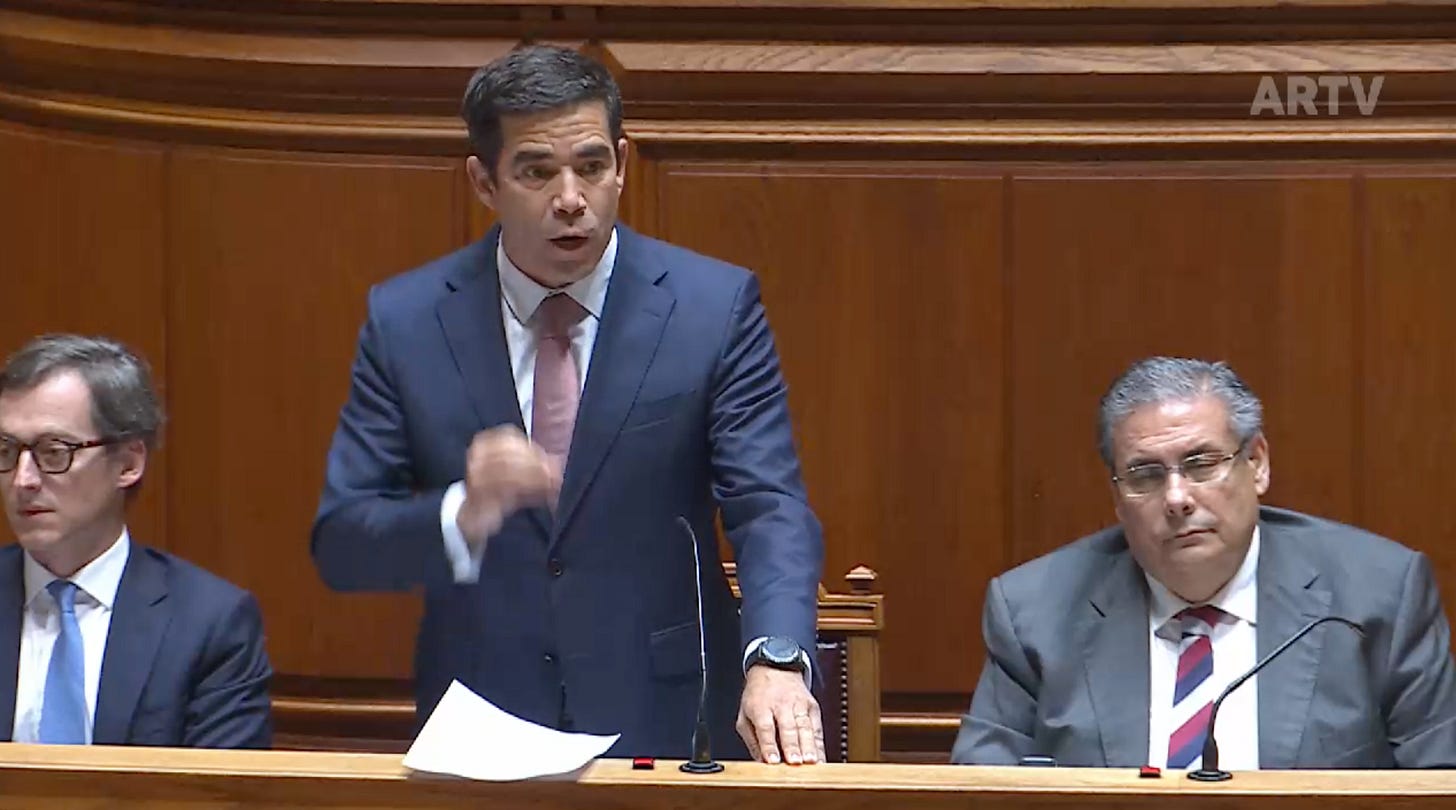
What was the government’s response?
Like Chega, conservative AD-partner CDS-PP, and the Liberals (IL), the Minister of the Presidency, António Leitão Amaro, blamed the Socialist Party (PS) for the current immigration situation, calling its policies a “disaster” and a “legacy that will be paid for over decades.” Responding to André Ventura, he stated that Portugal’s immigration policy has fundamentally changed over the past year, now marked by regulation “with humanity.” He outlined ten major reforms introduced by the government, including the end of the “expression of interest” mechanism and recent changes to the Nationality Law. Leitão Amaro concluded by urging Chega to support the government’s new measures in Parliament, saying, “I hope Chega finally contributes with its vote to bring about real immigration regulation in Portugal.” In short: the government hopes to win Chega’s support for its proposals, but Chega is driving a hard bargain, making the outcome of the debate still uncertain.
What about civil society?
Employers have largely criticized the government’s newly announced immigration measures, expressing frustration that they were not involved in the formulation of the proposals. Many are concerned that the tighter rules could negatively affect hiring and strain key sectors such as agriculture, tourism, and construction, which rely heavily on foreign labour. They are urging the government to ensure that the new restrictions do not undermine recruitment or the “green channel for immigration” in place since April 1. Their concerns were heightened after Minister António Leitão Amaro stated that “the economy will have to adapt” to the new rules. At the same time, protests from foreign residents have grown online. A petition opposing changes to the Nationality Law, calling for a fair transitional regime, has gathered the 7,500 signatures required for parliamentary debate. It proposes that anyone already legally residing in Portugal should retain the current five-year naturalization period, even if the law changes.
TIPS OF THE WEEK
Lisbon
Poster Monstra 2025
The 10th edition of Poster Mostra returns to Marvila, transforming the industrial neighborhood into Lisbon’s largest open-air art gallery from June 21 to September 2025. Over 70 posters by acclaimed and emerging artists will be displayed on building walls throughout the area, blending photography, illustration, mixed media, and text. Visitors can explore works by artists such as Joana Astolfi, Nini Andrade Silva, Adelino Lyon de Castro (MNAC), Catarina Glam, and many others, including 17 winners selected from open calls. This open-air exhibition, taking place between Rua do Açúcar and Largo do Poço do Bispo, already began on June 21 and will run through September. Free and open to all, Poster Mostra celebrates a decade of bringing art to the streets, highlighting Marvila’s growing role as a creative hub in Lisbon. Full program here.
Porto
Open House Porto
The 10th edition of Open House Porto (OHP), taking place on July 5–6, 2025, celebrates a decade of architectural discovery. Organized by Casa da Arquitectura, the event invites the public to explore over 70 remarkable buildings across Maia, Matosinhos, Porto, and Vila Nova de Gaia, many typically closed to visitors. As the only Open House worldwide spanning four cities, this anniversary edition revisits highlights from past years while also showcasing standout projects completed in the last five. Free and open to all, visits are guided by experts and volunteers and span a wide range of styles, eras, and functions. Two special programs, Caleidoscópio and Plus, offer interactive activities that spark conversation around architecture and urban life. Most sites require no booking, with the exception of spaces 3 and 68. Reservations open June 30 at 7 PM at openhouseporto.com, where full details and updates are also available.
Covilhã
Wool Urban Art Fest
Portugal’s oldest urban art festival takes place in Covilhã until June 29, offering a multidisciplinary program of mural painting, installations, talks, music, cinema, and community engagement. Focused on participation, this 12th edition features internationally acclaimed artists such as Boa Mistura (Spain), Lidia Cao (Galicia), Stelios Pupet (Greece), and Lígia Fernandes (Portugal), whose work engages directly with local communities. Music highlights include artist residencies by Bia Maria and Surma, and a series of mini-concerts throughout the city. The festival also screens CROSSROADS, a documentary on Boa Mistura’s global community projects. Thoughtful discussion comes via the WOOL Talks, with speakers Olivier Landes and Maria Vlachou. A standout community initiative, Todos Somos o Outro, involves residents in crafting a large wool tapestry using local textile remnants. The festival is supported by Turismo de Portugal, the Covilhã Municipality, the Spanish Embassy, and other partners. Full schedules and details are available at www.woolfest.org.
Évora
Insiders/Outsiders?
Insiders/Outsiders? brings together around sixty works from the Yannick and Ben Jakober Foundation, placing Moroccan artists of the “L’École de Essaouira” alongside Australian Aboriginal painters. Curated by Enrique Juncosa, former director of the Irish Museum of Modern Art and a long-time advocate for non-Western art, the exhibition explores what it means to be an “outsider” in the art world. Juncosa’s relationship with Aboriginal art began in the early 2000s with exhibitions co-organized with the Reina Sofía Museum and the Museum of Contemporary Art in Sydney. At the Palácio Duques de Cadaval in Évora, the white gallery walls now host a vibrant, symbolic visual dialogue, rich in ancestral myths, nature, and spirituality. These works challenge viewers to move beyond exoticism and embrace new ways of seeing, decolonising the gaze and bringing marginalised voices into the mainstream artistic narrative. On view until October 26, the show invites visitors to rethink global artistic canons through a southern lens.



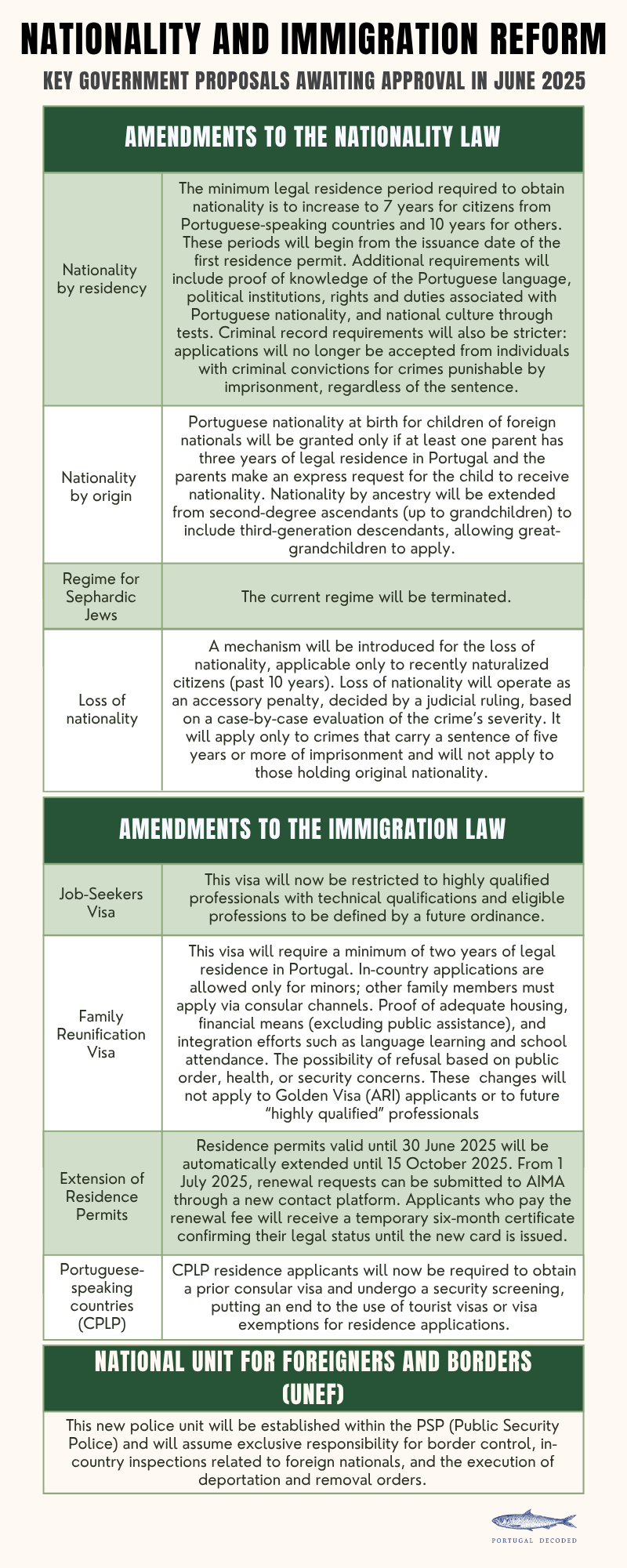
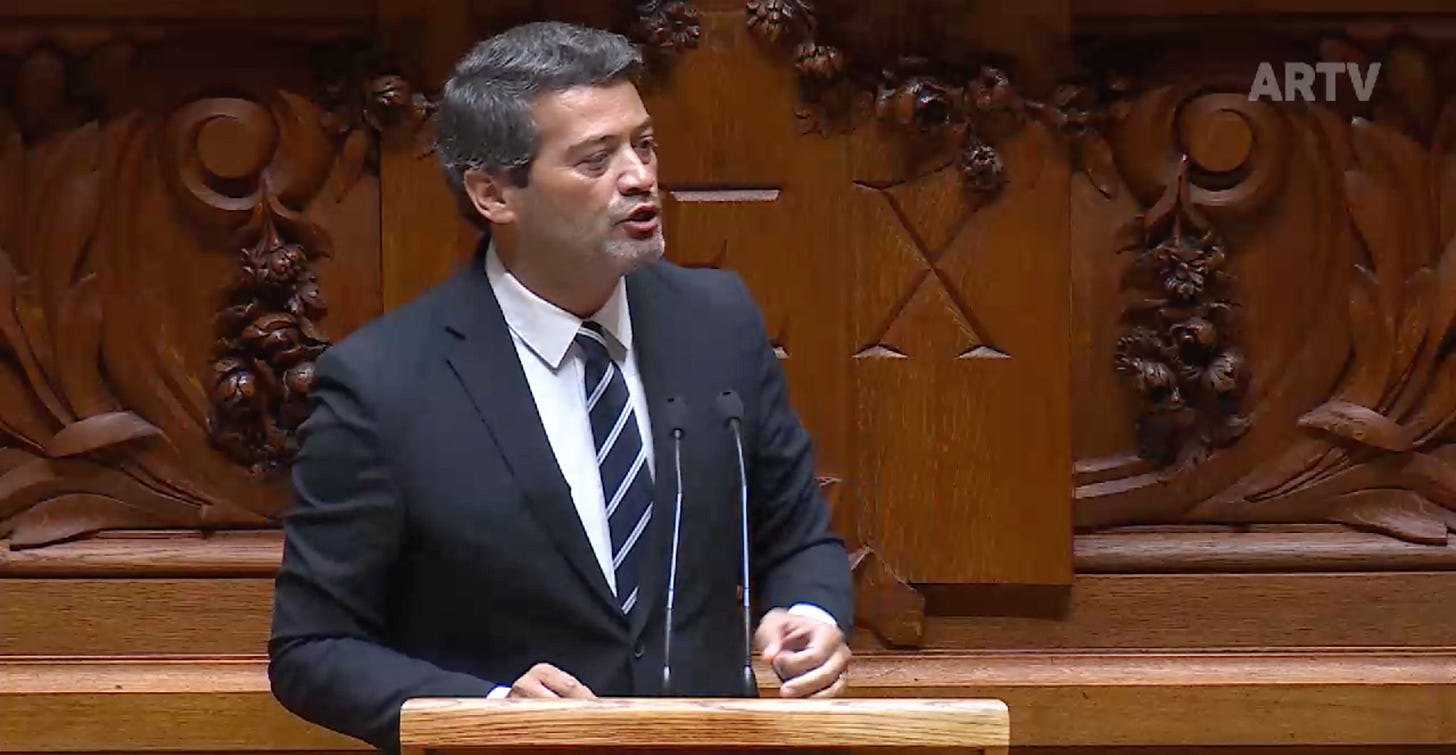
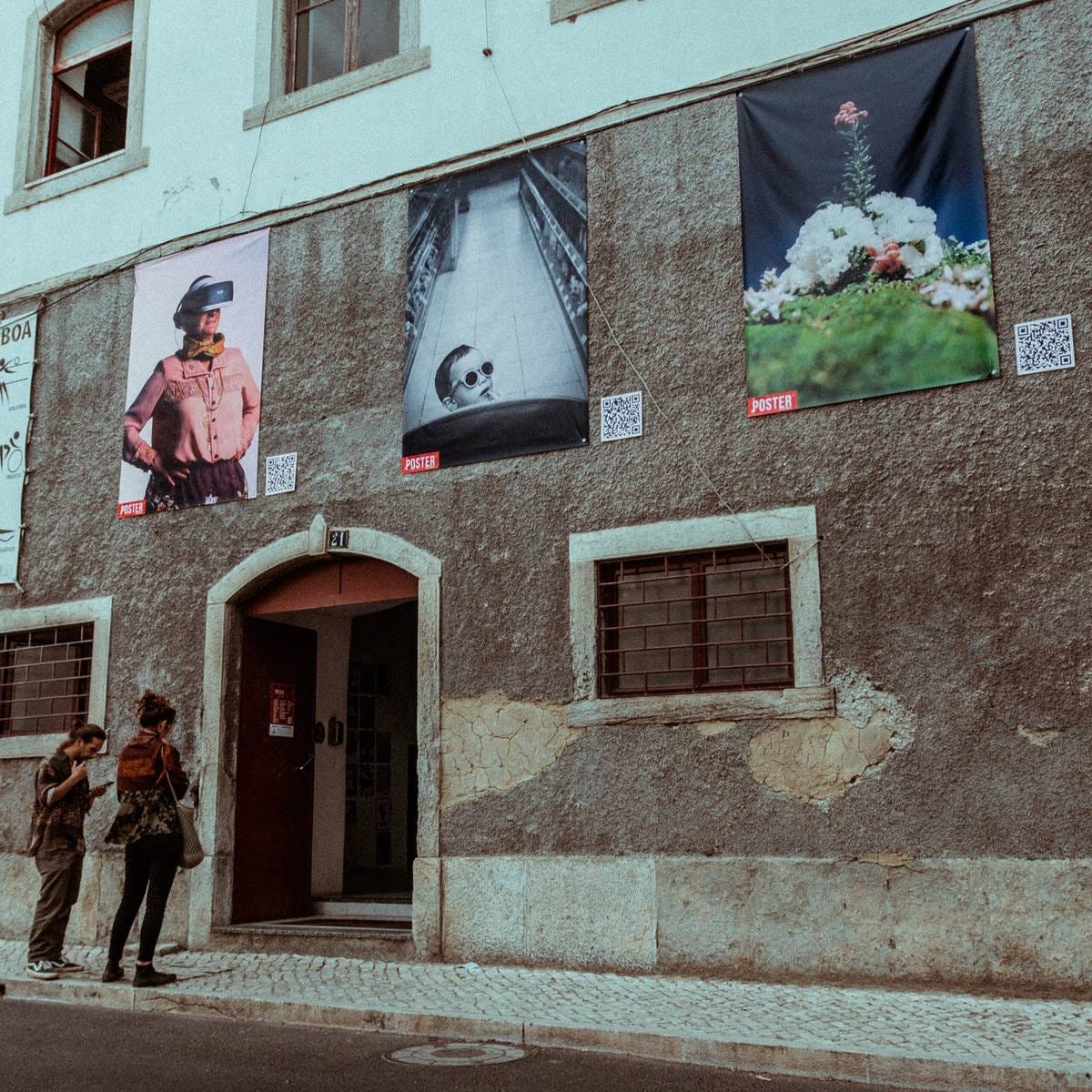
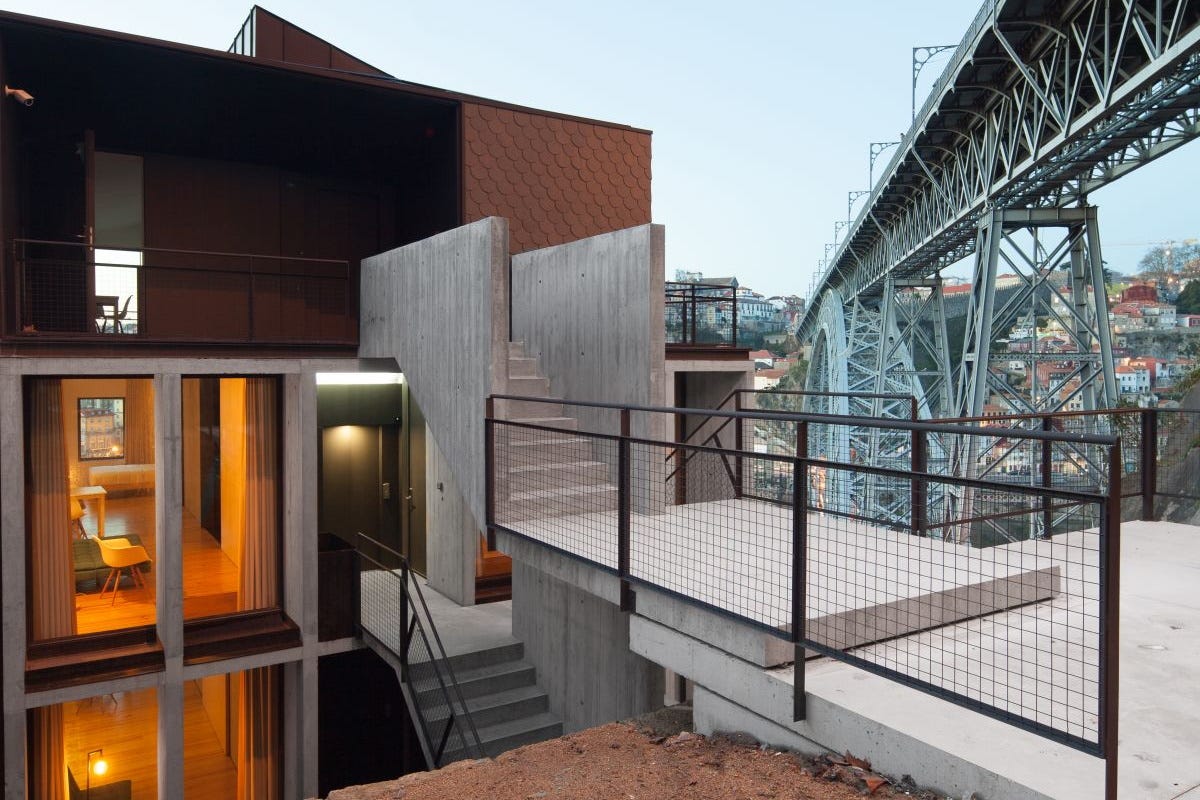
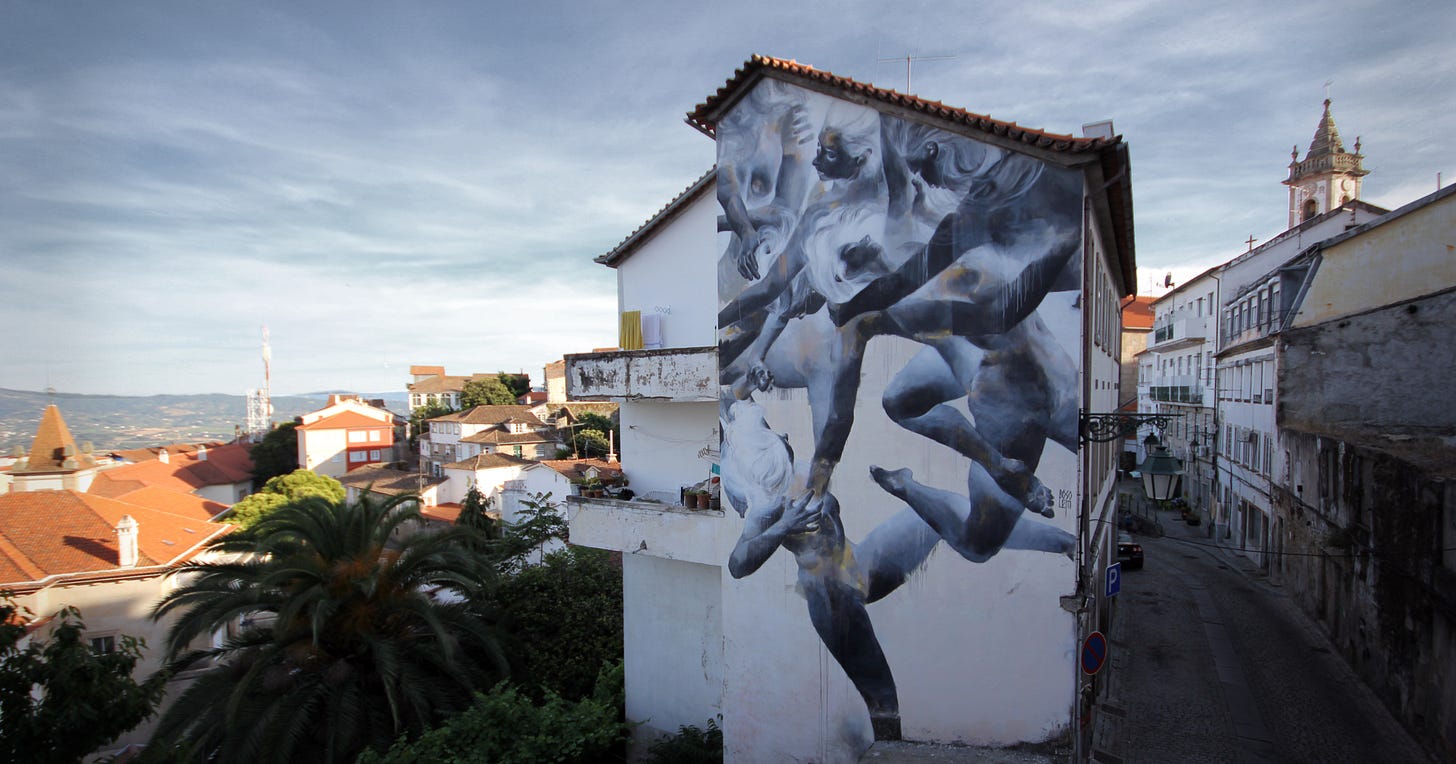
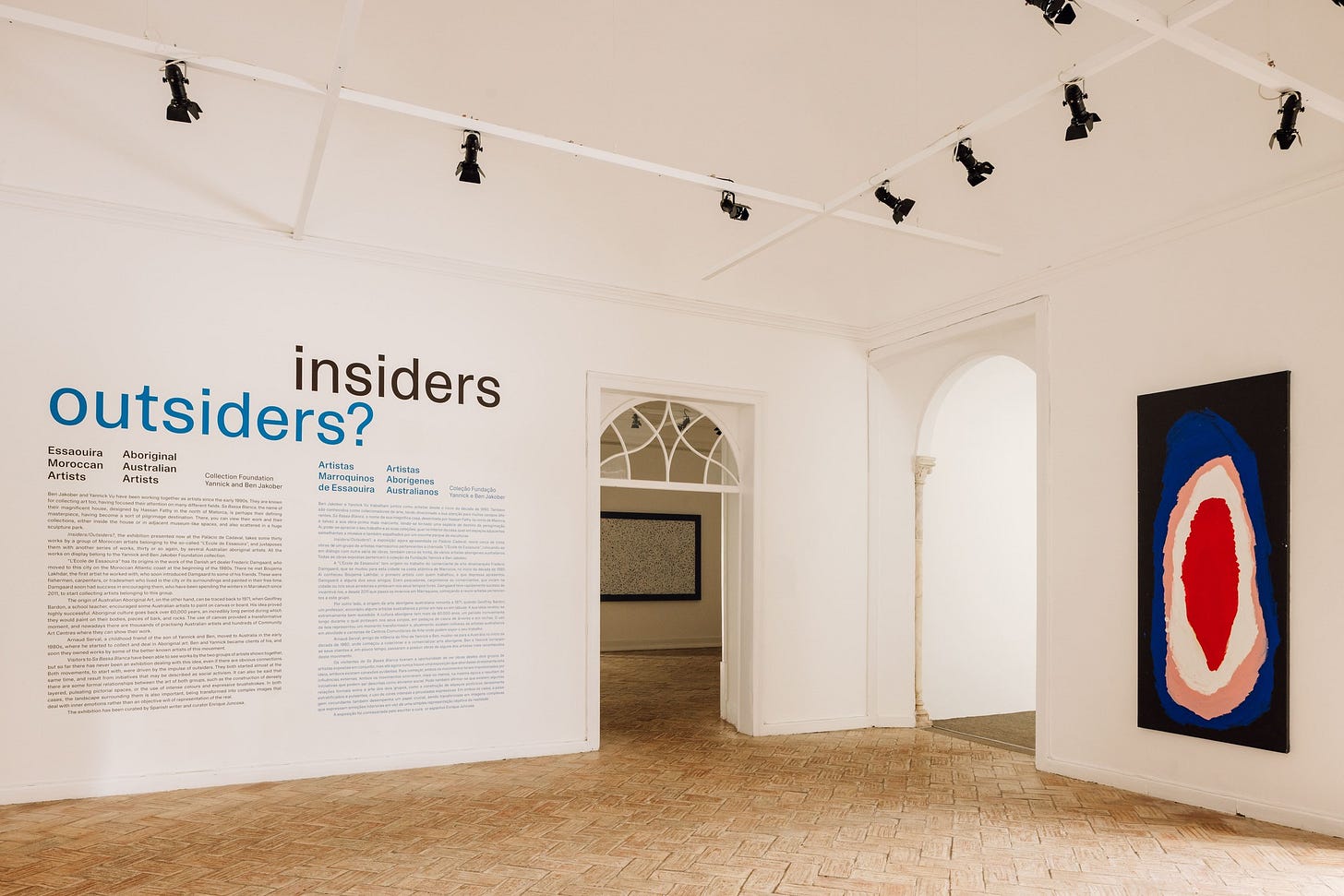
One small addition to the first answer of the DECODER: after parliamentary scrutiny, these proposals may also still face review by the Constitutional Court.